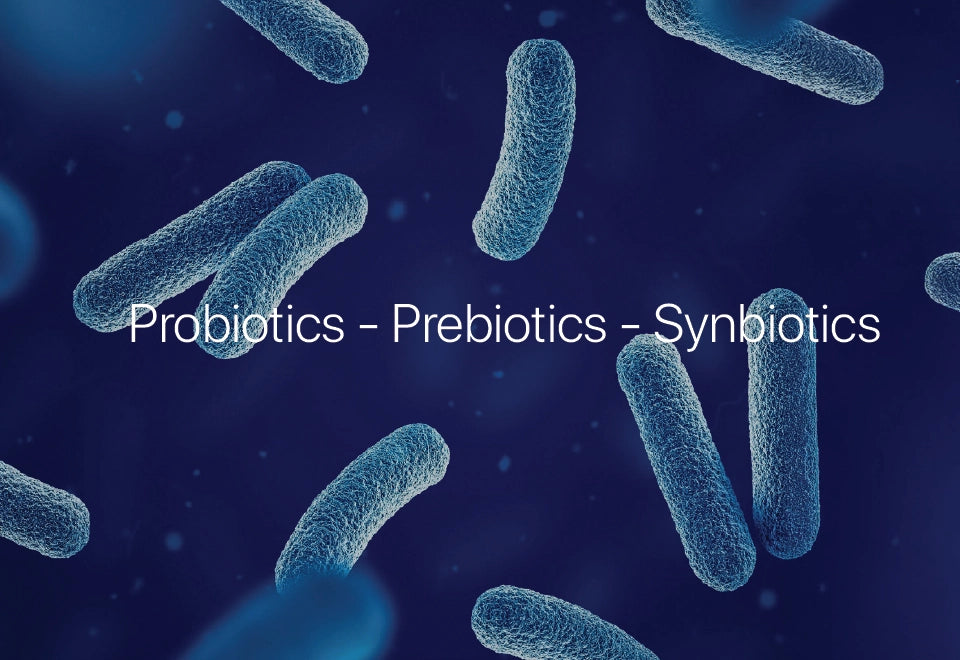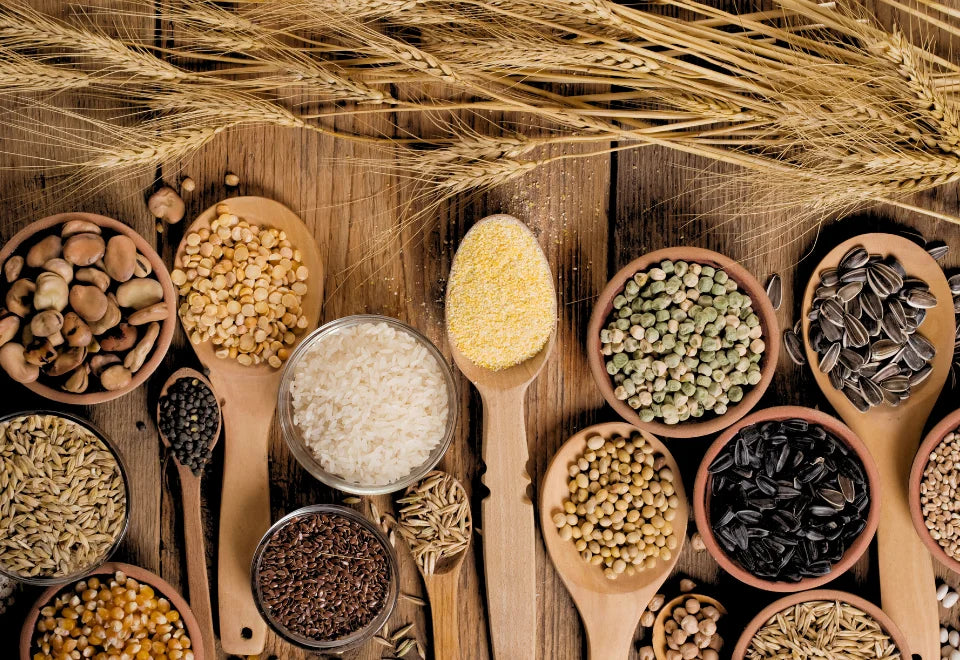Stress can disrupt the delicate balance of gut bacteria, leading to gut dysbiosis. This imbalance affects neurotransmitter production, which can worsen anxiety, depression, and even cognitive function.
How to Support Gut and Mental Health:
- Diet: Eat fiber-rich foods, fermented items, and prebiotics (onions, garlic, leeks).
- Probiotics: Use strains like Lactobacillus rhamnosus or Bifidobacterium bifidum to restore gut balance.
- Lifestyle: Manage stress with exercise, sleep, and mindfulness.
- Monitoring: Consider gut microbiome testing for personalized insights.
Stress and gut health are deeply connected. By nurturing your gut, you can improve mental well-being and break the stress-dysbiosis cycle.
Stress Effects on Gut Bacteria
Stress can cause noticeable changes in the bacterial community within your gut. Both short-term and long-term stress disrupt the balance of microorganisms in your digestive system. These changes can influence the production of brain chemicals, linking gut health to mental well-being.
Changes in Bacterial Diversity
Stress reduces the presence of helpful bacteria in the gut. For example, a study on university students showed that as academic stress increased during the semester, bacteria linked to better health significantly declined [1]. This drop in bacterial diversity can affect both your physical and mental health.
Different types of stress trigger specific microbial changes:
| Stress Type | Microbial Shifts | Health Impact |
|---|---|---|
| Acute Stress | Up to 10,000-fold rise in certain bacteria within 14 hours | Higher risk of infections |
| Chronic Stress | Decreased alpha diversity (Shannon and Simpson indices) | Weakened gut barrier function |
| Social Stress | Increased levels of inflammatory bacteria | Elevated inflammation markers |
Let’s dive into which bacterial groups are most impacted by stress.
Main Bacteria Affected by Stress
Stress-related conditions like anxiety and depression are often linked to an increase in harmful bacteria and a decrease in helpful ones. Research has identified certain bacterial groups that are especially sensitive to stress. For instance, Lactobacillus species tend to decline during stressful times [2]. On the other hand, stress can lead to a rise in Proteobacteria, which is associated with serotonin changes, and an increase in Bacteroidetes along with a drop in Firmicutes due to elevated norepinephrine levels [3].
These changes not only disrupt the gut’s balance but also weaken its protective barrier.
How Stress Disrupts Gut Balance
Stress affects gut health in several ways. A 2013 study found that public speaking could increase intestinal permeability - but only in individuals with high cortisol levels [1]. This weakened gut barrier worsens the imbalance caused by stress. Stress hormones also alter bacterial growth patterns, weaken the gut lining, and trigger inflammation, which further impacts bacterial populations.
A 2018 study observed that couples who engaged in hostile arguments had higher levels of markers for leaky gut, which were linked to increased inflammation [1]. This chain reaction suggests that stress-induced gut imbalances can feed back into the stress response itself, creating a vicious cycle of worsening gut health and stress-related symptoms.
Gut Bacteria and Brain Chemical Production
Your gut microbiome plays a key role in producing neurotransmitters that affect mood and cognition.
Brain Chemicals Made in the Gut
The gut is often referred to as the "second brain" because it produces over 90% of the body's neurotransmitters. This connection between gut health and brain function is crucial.
| Neurotransmitter | Primary Gut Producers | Function |
|---|---|---|
| Serotonin | Staphylococcus, Clostridial species | Regulates mood and supports intestinal movement |
| GABA | Bifidobacterium, Bacteroides fragilis | Helps reduce anxiety and manage stress responses |
| Dopamine | Staphylococcus, Enterococcus faecium | Involved in reward processing and motor control |
| Acetylcholine | Lactobacillus plantarum, Bacillus subtilis | Aids in intestinal movement and secretion |
How Bacteria Make Brain Chemicals
Gut bacteria contribute to neurotransmitter production by influencing tryptophan availability. For example, Lactobacillus and Bifidobacterium species can boost serotonin levels either by directly synthesizing neurotransmitters or by producing the enzymes needed for their creation [4].
A 2018 study revealed that Enterococcus faecium can convert L-dopa into dopamine in the gut, underscoring how gut bacteria help maintain neurotransmitter levels.
However, these processes are sensitive to stress, which can disrupt the balance of neurotransmitters.
Stress Impact on Brain Chemical Production
Stress-induced gut imbalances, or dysbiosis, can interfere with neurotransmitter production. Research shows that stress shifts tryptophan metabolism toward harmful compounds, reduces the production of short-chain fatty acids, and disrupts dopamine signaling by altering precursor levels [4]. Supporting this, a study found that the probiotic Lactobacillus plantarum JYLP-326 significantly improved symptoms of major depressive disorder by modifying tryptophan metabolism and increasing serotonin levels [4].
sbb-itb-55c436e
Mental Health Effects of Brain Chemical Changes
Depression, Anxiety, and Gut Health
Research shows a clear connection between gut health and mental disorders. For instance, over 240 million people worldwide deal with depression, and up to 90% of individuals with IBS also experience anxiety or depressive symptoms [5][3]. During the COVID-19 pandemic, studies on frontline healthcare workers revealed that stress-related disruptions in the gut microbiome were directly linked to higher levels of depression and anxiety [6].
Effects on Brain Function
Gut health doesn't just affect mood - it also plays a role in cognitive function. Clinical research has found that reduced levels of serotonin precursors are associated with cognitive decline in patients with amnestic mild cognitive impairment [7]. Some gut bacteria have been shown to protect dopamine-producing neurons, while others can trigger inflammation that lowers dopamine levels [5].
The Stress-Gut-Brain Cycle
The gut-brain axis plays a key role in how stress and gut health influence each other. This two-way connection often creates a feedback loop where stress worsens gut issues, and gut problems amplify stress. This cycle is particularly noticeable in IBS, where digestive symptoms and emotional distress frequently go hand in hand [3]. Certain supplements, such as Lactobacillus plantarum DR7, Bacillus coagulans, and oral berberine, have been associated with reduced stress, better neurotransmitter balance, and symptom relief in conditions like Parkinson's disease [5][7].
Treatment Options for Gut and Stress Management
Using Pre- and Probiotics
Research shows that certain probiotics can support both gut and mental health. Notable strains include Lactobacillus rhamnosus GG, Lactobacillus casei, and Bifidobacterium bifidum Bb12 [8]. These bacteria are known to interact with the hypothalamic-pituitary-adrenal (HPA) axis and help lower brain inflammation.
For probiotics to be effective, foods should contain at least 7 log CFU per ~100 g serving [8]. When it comes to prebiotics, the following daily dosages are recommended:
| Prebiotic Type | Daily Dosage |
|---|---|
| Polydextrose | 2–7.5 grams |
| Resistant Starch | 2.5–5 grams |
| Inulin | 1–6 grams |
Pairing these supplements with stress-reducing lifestyle changes can maximize their benefits.
Stress Relief Methods
Lifestyle changes play a key role in managing stress and supporting gut health. A varied diet rich in fiber helps nurture the gut microbiome and alleviate stress, both of which contribute to longevity and healthy ageing.
Experts suggest incorporating regular exercise, maintaining a consistent sleep schedule, practicing mindfulness, and eating prebiotic-rich foods like onions, garlic, and leeks.
New Gut Health Research
Emerging studies reveal that the gut microbiome works closely with circadian rhythms to influence stress responses. Advanced gut health analyses, now assess over 30 markers to provide tailored health recommendations.
Dr. Gabriel Tofani's research emphasizes the potential of targeting microbiota circadian rhythms to develop treatments for stress-related conditions.
One clinical trial found that L. plantarum P-8 significantly reduced stress and anxiety symptoms over a 12-week period. Participants experienced lower stress hormone levels and improved cognitive function [9].
Conclusion: Supporting Mental Health Through Gut Health
Main Points
Research shows that about 90% of serotonin is produced in the gut, highlighting how gut bacteria influence mental health. Stress can disrupt the balance of gut bacteria, leading to dysbiosis. This imbalance hampers neurotransmitter production, which can worsen anxiety and depression.
These insights suggest practical ways to address the stress-dysbiosis connection.
Next Steps for Gut Health
Improving gut and mental health involves focusing on three main areas: diet, lifestyle, and regular monitoring. Here's a breakdown:
| Focus Area | Recommended Actions | Benefits |
|---|---|---|
| Diet | Include fiber-rich foods, fermented items, and prebiotics like onions, garlic, and leeks | Encourages healthy bacteria growth and boosts neurotransmitter production |
| Lifestyle | Engage in regular exercise, get 7-9 hours of sleep, and practice stress management | Lowers inflammation and strengthens the gut barrier |
| Monitoring | Use gut microbiome testing and track stress levels | Helps tailor interventions and track improvements |
"The bidirectional link between the brain and gut microbiome has come to the forefront of the medical research community in the past few years. The growing amount of evidence substantiating this link indicates it will be a valuable area for future medical and nutritional practice, and research." - Megan Clapp, School of Medicine
Clinical studies back this approach. For example, one study found that a combination of L. acidophilus, B. bifidum, and B. longum improved participants' conditions by 40.7% over six months [10]. This demonstrates how targeted gut health strategies can make a real difference in mental health and stress management.
FAQs
How does stress affect gut health?
Stress can disrupt the balance of gut bacteria, leading to gut dysbiosis. This imbalance weakens the gut barrier, increases inflammation, and affects neurotransmitter production, which can contribute to anxiety, depression, and cognitive decline.
Can improving gut health help with stress and mental health?
Yes, a healthy gut microbiome supports neurotransmitter production, including serotonin and GABA, which regulate mood and stress responses. Consuming fiber-rich foods, probiotics, and prebiotics can help restore gut balance and improve mental well-being.
What foods support gut health and stress management?
Prebiotic-rich foods like onions, garlic, and leeks, along with fiber-rich and fermented foods such as yogurt, kefir, and kimchi, help nourish beneficial gut bacteria and reduce stress-related gut imbalances.




























Leave a comment
All comments are moderated before being published.
This site is protected by hCaptcha and the hCaptcha Privacy Policy and Terms of Service apply.